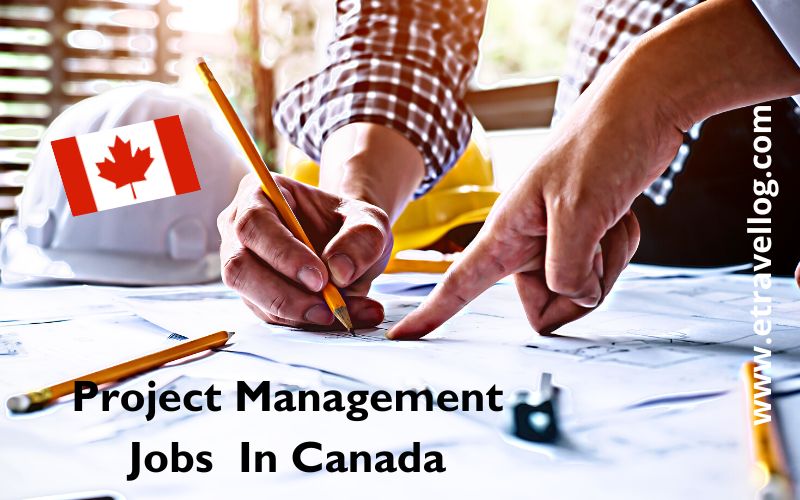
Pro Tips: How To Immigrate To Canada As A Doctor
Express Entry
Express Entry provides a faster path to permanent residency for certain eligible skilled workers. Candidates applying through the Express Entry system must have experience in skill types A, B, or 0. Physicians and specialized Physicians fall under the National Occupation Classification (NOC) classification for skill category A and are eligible for the Express Entry system under the Federal Skilled Worker program. Express Entry is a points-based system that invites the top prospects to apply for permanent residency. If a foreign-trained physician does not have enough points to qualify for Express Entry, they can apply for a Provincial Nominee Program. For more info, please visit.
Provincial Nominee Programs (PNPs)
Each province has its nominee program, which allows them to participate in the newcomer selection process. Most areas design their nomination programs to meet labor market demands and focus on specific in-demand jobs. Physicians with job offers in their provinces have their nominee streams in British Columbia, Saskatchewan, and Nova Scotia. Many others have nominee schemes to either be employed in their area or have a local firm's full-time job offer.
Some provinces additionally provide nominees with a work permit support letter, which allows them to apply for work permits without completing a Labor Market Impact Assessment (LMIA). This eliminates a step in bringing foreign physicians to Canada for the employer. Candidates nominated under an Express Entry aligned stream may obtain an additional 600 points toward their CRS score, helping them become permanent residents of Canada sooner.
Which Canadian Provinces Are In Desperate Need of Doctors & Other Health Workers?
The top four Canadian provinces with the highest need for qualified nurses are:
Manitoba
Manitoba is a Canadian province in the center of the country, and it is one of the most in need of nurses and doctors. According to CBC News, Manitoba has had a significant shortage of nurses for several years. Since the Covid-19 pandemic, Manitoba's number of nurses required has more than doubled.
New Brunswick
Registered nurses, licensed practical doctors, and personal support workers are also needed in New Brunswick. In either official language, there are job opportunities (English or French). New Brunswick has made recruiting, supporting, and retaining these critical healthcare workers a top priority.
Nova Scotia
Nova Scotia is also looking to fill many nursing job openings since many nurses in the province are planning to retire soon.
Quebec
Nurses are likewise in high demand. The province collaborates with work permit programs to encourage immigrants to work as nurses in Quebec in the new year.
How To Get A Job As A Doctor In Canada
Obtaining your medical degree in Canada is a very lengthy process that includes completing four years of undergrad university (usually with a major in science), four years of medical school, and anywhere from two to six years of residency. But once you've acquired those degrees, you will be qualified to work as a doctor in Canada and can begin becoming licensed by the province where you'll be practicing.
The first step to becoming a doctor in Canada is obtaining your bachelor's degree. Prospective doctors must complete a four-year undergraduate program at an accredited university, usually majoring in science. They must pass the Medical College Admission Test (MCAT) to enter medical school. Once admitted, you will embark on another four years of training.
Becoming a doctor in Canada is a detailed process that can take around ten years to complete. If you are interested in becoming a doctor, you must dedicate time, money, and energy to your training.
The good news is that Canada has an incredible healthcare system that offers high salaries and growth opportunities. Here is everything you need to know about becoming a doctor in Canada. You will study anatomy and physiology, biochemistry, immunology, pharmacology, and pathology during these ten years. In the final two years, students fulfill rotations at hospitals.
Medical students must apply for residency positions through the Canadian Resident Matching Service (CaRMS). Acceptance rates are high but competitive; only about 90% of residencies are filled by Canadian students and others who choose to attend Canadian schools over American ones.[1] Residency programs last anywhere from two to six years.
Becoming a doctor in Canada isn't easy. The path is long, and the competition is fierce. But the rewards are great, and the need for doctors in Canada is constantly growing. If you have the passion and determination to become a doctor, this guide is for you. We'll show you how to become a doctor in Canada — from choosing your specialty to getting matched with a residency program.
1. You have to earn a bachelor's degree
Obtaining a bachelor's degree from an approved university is usually the first step toward becoming a doctor. You can major in a variety of subjects. While each medical school has its own set of undergraduate requirements, you must take pre-requisite biology, mathematics, physics, biochemistry, and statistics courses. Conditions vary across the country, and certain provinces and territories have their own set of rules.
2. Get into medical school and graduate
Before finishing your undergraduate degree, you can apply to one of the 17 approved medical schools. These institutions will usually look over your statement, undergraduate record, and MCAT score before scheduling interviews with applicants. Except in Quebec, all medical schools in the United States require the MCAT exam. It is the only province that prioritizes other components of the application and a candidate's background over test scores. Applicants are not required to take or pass the exam to apply.
The average length of time to complete a medical school program is four years. You learn subjects connected to medicine in the first two years, such as:
-
anatomy
-
physiology
-
microbiology
-
pharmacology
Some courses you take in your final two years include:
-
surgery
-
pediatrics
-
obstetrics and gynecology
-
family medicine
-
internal medicine
Upon completing the program, your medical school awards you a Doctor of Medicine (M.D.).
3. You must pass the Medical Council of Canada Qualifying Examination (MCCQE) Part I
Part I of the MCCQE assesses your medical knowledge and competence to make medical choices. The exam is divided into two sections. Although graduates can also apply, you can take MCCQE Part I as a student. You must use it 15 months before your planned graduation date or while waiting for your degree to be verified by the Medical Council of Canada.
You have one year to prepare for the MCCQE Part I after applying. While taking this exam, consider the field you want to specialize in.
4. Complete your residency training
The Canadian Resident Matching Service allows you to apply for residency training starting in the fall of your final year of study (CaRMS). With the service, you can select the field of specialization for your residency training and the healthcare facility of your choice. The residency programs you apply to rate students to pick the best candidates. Your residency training allows you to learn from seasoned clinicians while also actually treating, diagnosing, and counseling patients. Although residency programs vary in length, they typically last two to six years. A fellowship requires an additional two or three years to complete.
5. Pass the MCCQE Part II and earn a medical license in your province or territory
You can take the MCCQE Part II after 12 months of residency training. This exam assesses your clinical practice knowledge, skills, and abilities. When you've finished, the council awards you the title of Licentiate of the Medical Council of Canada (LMCC). Before getting a full medical license, regulatory authorities require you to have the LMCC. You may also need to participate in Continuing Medical Education (CME) programs and become a member of the regulatory authority in your province or territory to work in some healthcare institutions.





Thank you, I have recently been searching for info about this subject for ages and yours is the greatest I’ve came upon till now. However, what concerning the bottom line? Are you sure concerning the supply?
Glad we could help. Don’t be a stranger, okay.